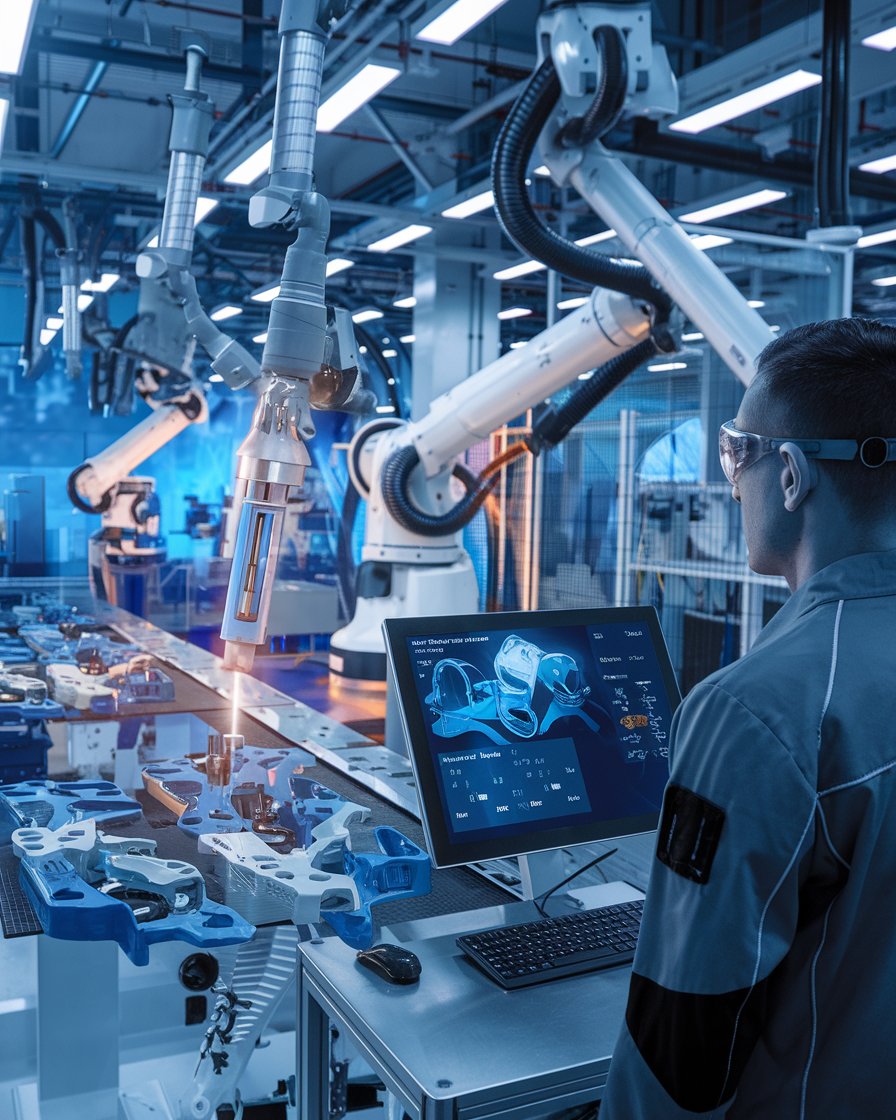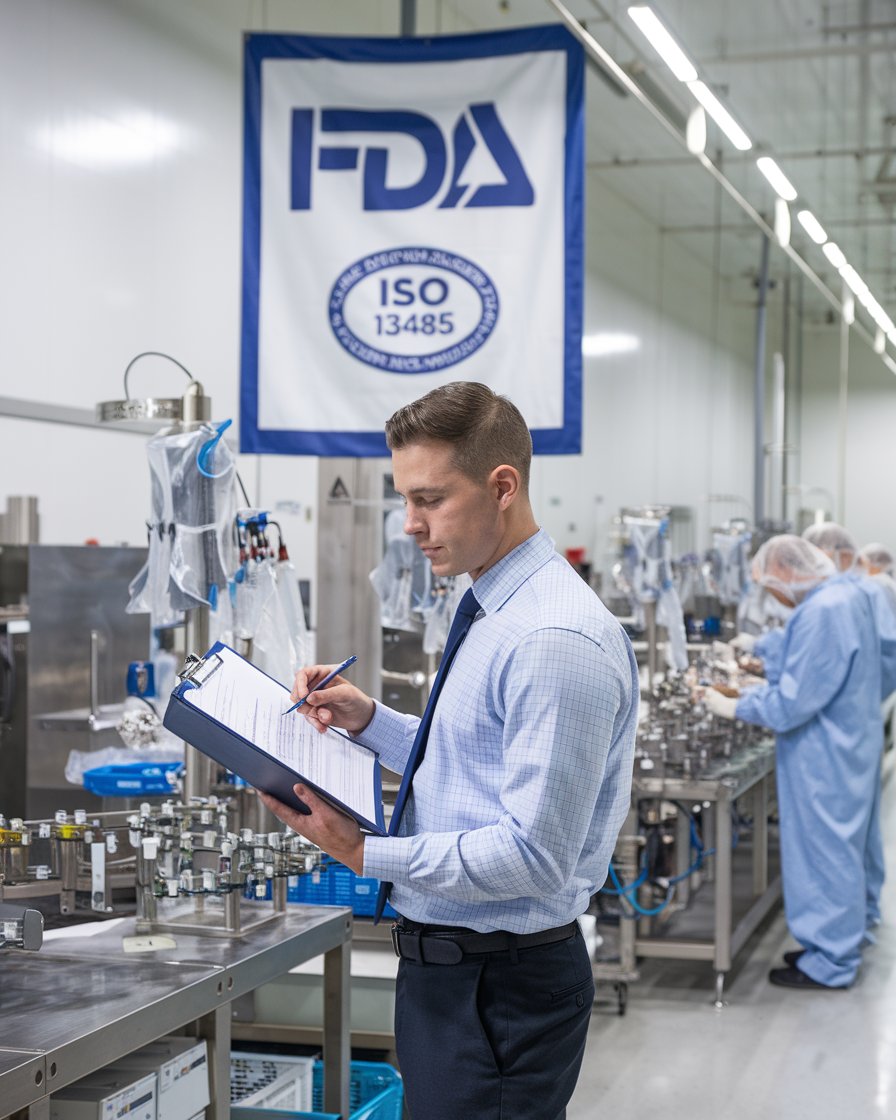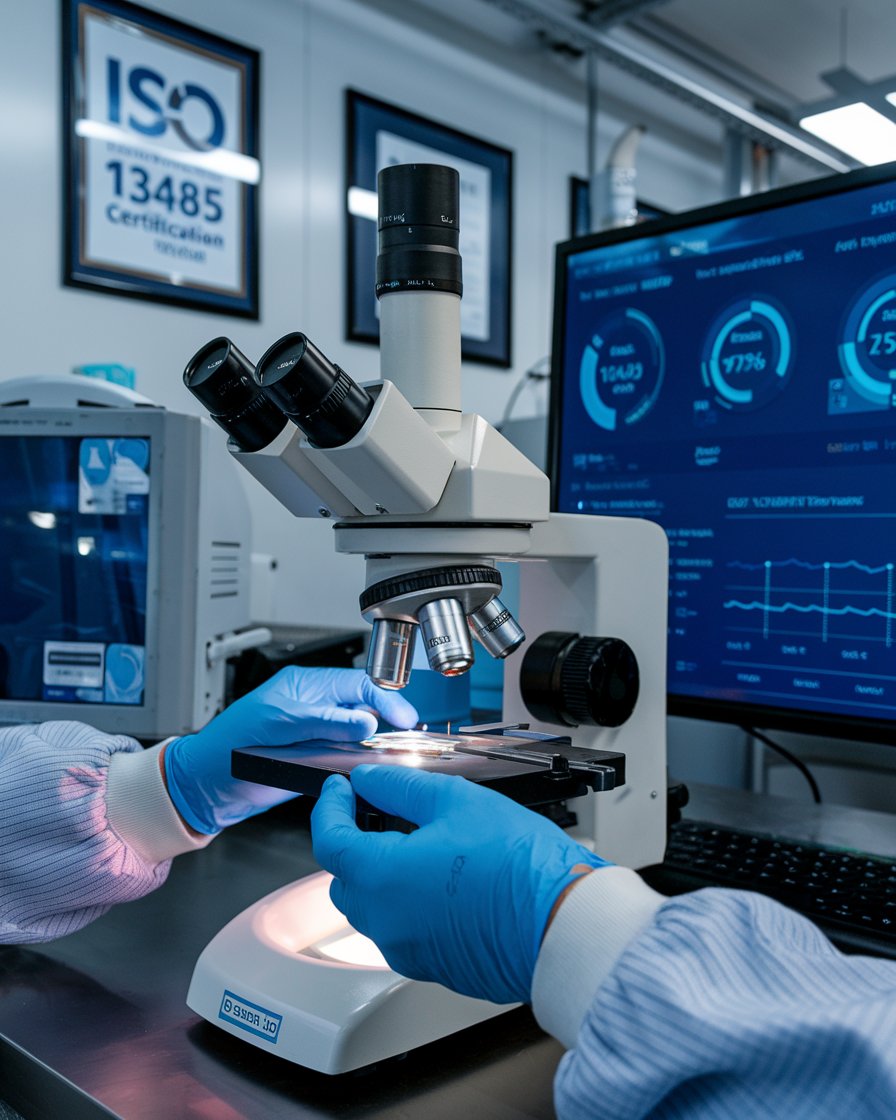Introduction
In the medical device industry, manufacturers play a vital role in ensuring that products are developed and brought to market safely and efficiently. As part of the contract manufacturing process, these companies work closely with suppliers to meet regulatory requirements and maintain high standards. A medical device manufacturer ensures that the design, molding, and production phases align with ISO 13485 certification, which is essential for quality control. This partnership not only streamlines the manufacturing process but also helps mitigate risks associated with product development and supply chain management.
Contract manufacturers are crucial in handling the production side of medical device manufacturing. They use advanced equipment, such as injection molding, to create high-quality medical devices that comply with FDA standards. By working with ISO 13485 certified partners, medical device manufacturers can ensure that their products meet the safety and efficacy standards required for medical-grade devices. This collaboration helps bring medical equipment to market while maintaining strict regulatory compliance.
Key Takeaways
- Medical device manufacturers play a crucial role in ensuring regulatory compliance and quality control through close collaboration with contract manufacturers.
- ISO 13485 certification is essential for both medical device manufacturers and contract manufacturers to meet international quality and safety standards.
- Advanced technologies like injection molding streamline the production process, allowing contract manufacturers to produce high-quality devices efficiently.
- Managing the supply chain effectively ensures timely production and reduces disruptions, helping medical devices reach the market faster.
- Regulatory compliance with FDA and ISO 13485 guidelines is vital for ensuring safety, preventing product recalls, and avoiding delays in market entry.
- Regular audits and robust quality management systems help manufacturers identify potential issues early and maintain high production standards.
The Role of a Medical Device Manufacturer in Contract Manufacturing
In the medical device industry, the manufacturer of record plays a crucial role in the overall contract manufacturing process. They ensure that the medical device is produced in compliance with strict regulatory requirements. Medical device manufacturers work closely with contract manufacturers to oversee design, molding, and production. This partnership guarantees the device meets all necessary certifications, such as ISO 13485, which is essential for quality control. These manufacturers are responsible for maintaining a seamless supply chain, from material sourcing to final product assembly. Their experience helps reduce the burden on contract manufacturers by ensuring that all phases of the production process are carried out smoothly and efficiently.
Key Responsibilities of a Medical Device Manufacturer in Contract Manufacturing
Ensuring Compliance with Regulatory Standards
Medical device manufacturers must work closely with contract manufacturers to ensure that all regulatory requirements are met. Compliance with FDA and ISO 13485 certification is crucial to guarantee that the devices are safe, effective, and meet industry standards. These certifications are the foundation of quality control in medical device production.Overseeing Design and Development
Medical device manufacturers play a vital role in the design and development stages of device creation. They collaborate with contract manufacturers to ensure that the design aligns with safety protocols and regulatory requirements, making sure that every aspect of the product, from molding to final assembly, adheres to strict industry standards.Managing the Supply Chain
A critical responsibility of medical device manufacturers is managing the supply chain. By sourcing materials from reliable suppliers, they ensure the contract manufacturer can produce devices on time and meet market demands. Efficient supply chain management helps avoid delays that could affect the time to market.Mitigating Risks Through Partnership
Collaborating with contract manufacturers allows medical device companies to mitigate risks at various stages of production. By overseeing the entire manufacturing process and ensuring compliance with quality management systems like ISO 13485, manufacturers can detect and address potential risks early, ensuring smooth production.Supporting Quality Control and Certification
Medical device manufacturers ensure that the production process follows stringent quality control measures, especially when it comes to ISO 13485 certification. This quality assurance is critical for the final product to meet industry standards, allowing the device to enter the market with full regulatory approval.Streamlining Time to Market
By maintaining a close partnership with contract manufacturers and managing the production and supply chain efficiently, medical device manufacturers help streamline the time it takes to bring new devices to market. This ensures that innovative medical technologies reach healthcare providers and patients without unnecessary delays.
Collaborating with Contract Manufacturers to Ensure Compliance
A successful medical device manufacturer understands the importance of working closely with contract manufacturers to ensure that all regulatory requirements are met. By collaborating during the design, molding, and production phases, both parties can maintain high standards, including compliance with ISO 13485 certification. This partnership helps mitigate risks and ensures that the final product meets both quality control and safety requirements. Medical device manufacturers provide essential oversight, reducing the burden on contract manufacturers, and ensuring that devices are brought to market efficiently and in compliance with regulatory bodies.
Managing the Supply Chain for Medical Device Production
The medical device manufacturer’s role extends beyond just the design and production process. They are also key in managing the supply chain to ensure the timely delivery of materials required for production. Working with reliable suppliers is crucial to avoid disruptions that could delay the time to market for medical devices. Through proper management systems, medical device manufacturers can oversee all aspects of the supply chain, including material procurement, storage, and distribution, ensuring that the contract manufacturer has everything needed to meet production goals.
How Medical Device Contract Manufacturers Streamline Production
Medical device contract manufacturers are pivotal in streamlining the production of medical devices, especially when original equipment manufacturers (OEMs) outsource their production needs. These manufacturers have the know-how and specialized equipment, such as injection molding machinery, to efficiently produce high-quality medical devices. By leveraging in-house production capabilities, contract manufacturers can ensure faster time to market while maintaining strict quality standards. Working under ISO 13485 certification ensures that the medical device contract manufacturers are compliant with regulatory authorities. This streamlining of operations allows for smoother integration of manufacturing services and reduces potential delays in production.
Case Study: How Injection Molding Helped a Medical Device Manufacturer Streamline Production
One relevant case study involves a contract manufacturer partnering with an original equipment manufacturer (OEM) to streamline the production of a Class II medical device. The OEM outsourced production to a contract manufacturer specializing in injection molding. By utilizing advanced injection molding technology, the contract manufacturer was able to create highly precise and complex components for the medical device. This allowed the company to maintain strict ISO 13485 compliance while reducing the overall production timeline.
The contract manufacturer also leveraged in-house capabilities, including design and sterilization, which eliminated the need for third-party outsourcing. By handling all production processes under one roof, the manufacturer ensured faster time to market and reduced costs for the OEM. This partnership allowed the OEM to focus on product development and regulatory approvals while the contract manufacturer maintained full control over the production quality and schedule.
Utilizing Advanced Manufacturing Technologies
Contract manufacturers often use advanced technologies such as injection molding to streamline the production process. This technique, particularly in medical device manufacturing, enables the creation of complex designs with high precision. By using specialized equipment, contract manufacturers can produce devices that meet stringent quality control requirements. The use of in-house molding capabilities ensures that medical devices are manufactured efficiently, reducing the time needed to bring products to market. This advanced approach supports the seamless execution of production, especially when adhering to ISO 13485 standards.
In-House Capabilities and Faster Time to Market
Many contract manufacturers offer in-house capabilities such as design, molding, and sterilization, which helps streamline the overall production process. By keeping these key functions under one roof, they can reduce the need for outsourcing and ensure greater control over quality. This, in turn, shortens the time it takes to bring medical devices to market, an essential factor in a highly competitive industry. The ability to manage the entire production process under ISO 13485 certification ensures that all regulatory requirements are met efficiently and effectively.
Regulatory Requirements for Medical Device Manufacturing Companies
Medical device manufacturing companies must adhere to stringent regulatory requirements to ensure that their products meet safety and efficacy standards. For Class II and III medical devices, manufacturers must comply with FDA regulations and ISO 13485 guidelines. These standards require manufacturers to implement quality management systems that monitor every phase of production, from design and development to final sterilization and packaging. Failure to meet these regulatory requirements can result in delays in bringing a medical device to market or even product recalls. Therefore, compliance with international standards and regular audits of manufacturing processes are essential for maintaining the integrity of medical device manufacturing services.
Ensuring Compliance with FDA and ISO 13485 Regulations
Medical device manufacturing companies must navigate complex regulatory frameworks to ensure compliance with both the FDA and ISO 13485 standards. For Class II and III medical devices, this involves rigorous testing, quality management systems, and frequent audits to ensure safety and efficacy. Failure to comply with these regulations can result in delays, financial penalties, or product recalls. By implementing a robust regulatory compliance strategy, manufacturers can ensure that their products meet the highest standards for medical devices, safeguarding their position in the market and preventing disruptions in the supply chain.
Importance of Regular Audits and Quality Management Systems
To maintain compliance with international standards, medical device manufacturers must undergo regular audits of their production processes. Quality management systems, such as those required by ISO 13485, are designed to ensure continuous monitoring and improvement of all stages of production. These systems help identify potential issues early in the manufacturing process, allowing for timely corrections and preventing costly errors. Regular audits also ensure that manufacturers stay compliant with FDA and other regulatory requirements, enabling them to maintain high-quality medical device production standards.
“Compliance is the foundation upon which we build trust in the safety and efficacy of medical devices.” – Dr. Margaret Hamburg, former Commissioner of the U.S. Food and Drug Administration (FDA)
Source: FDA Archives
The Importance of ISO 13485 Certification in Medical Device Manufacturing
ISO 13485 certification is a critical benchmark in the medical device manufacturing industry. It demonstrates that a manufacturer adheres to the highest quality management standards required for the production of medical devices. Certification ensures that companies follow strict protocols for quality control, which is essential for both contract manufacturers and original equipment manufacturers. By obtaining ISO 13485 certification, medical device companies can assure regulatory authorities and consumers that their products are safe, reliable, and meet international standards. In a highly regulated field, having this certification is not just a competitive advantage but also a requirement for entering the market.
Gaining Competitive Advantage Through ISO 13485 Certification
ISO 13485 certification offers medical device manufacturers a significant competitive edge in the global market. With certification, companies demonstrate that they adhere to stringent quality control standards and comply with regulatory authorities worldwide. This certification assures customers that products are reliable, safe, and produced according to internationally recognized quality management systems. For contract manufacturers, achieving this certification can also help them secure partnerships with leading medical device companies, as ISO 13485 compliance is often a mandatory requirement for entering into contracts.
Maintaining Product Safety and Efficacy Through Certification
Product safety and efficacy are critical elements in medical device manufacturing, and ISO 13485 certification ensures that these standards are met consistently. By adhering to certified quality management systems, manufacturers can maintain rigorous quality control throughout the production process. This certification is essential for medical devices to meet the safety standards required by regulatory bodies, ensuring that the final products perform as intended. ISO 13485 certification not only protects the company from legal or regulatory consequences but also enhances the reputation of the manufacturer within the healthcare industry.
Conclusion
In conclusion, medical device manufacturers and contract manufacturers play an essential role in bringing safe and effective devices to market. By working closely together, they ensure that the design and manufacturing processes comply with ISO 13485 certification and meet all necessary FDA requirements. This partnership not only supports the development of reliable and high-quality medical devices but also helps mitigate risks related to the production process.
Maintaining rigorous quality systems and adhering to regulatory standards is key to ensuring that medical devices on the market are safe for public use. With the proper management of the supply chain and a focus on quality throughout all phases of production, medical device manufacturers can consistently produce products that meet international standards. In this way, the collaboration between manufacturers and contract partners is crucial for ensuring that every medical device functions as intended and promotes health and well-being.








